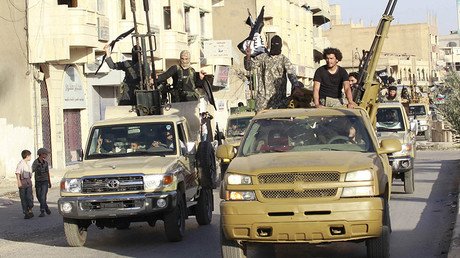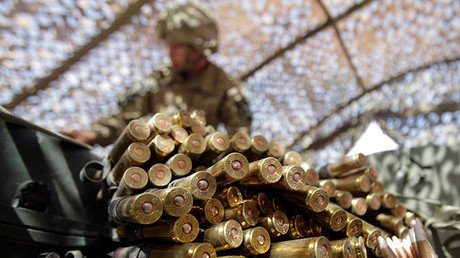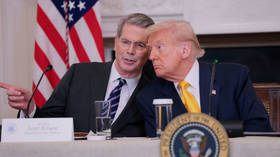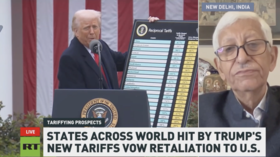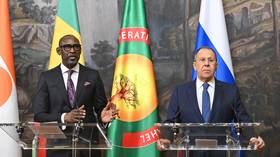'Foreign funding gave big power to small groups in Syria, flipped everything on its head’
In Syria, there are different interests sometimes running parallel or are completely inconsistent, says former CIA officer Jack Rice. He adds that the proxy wars, with funding rolling out of the US and other powers, have led to the morass seen today.
According to a leaked document from NSA whistleblower Edward Snowden, Saudi Arabia ordered Syrian opposition forces to 'Light-up Damascus’ in 2013 while providing them with tons of weapons for the assault.
RT spoke to former CIA officer Jack Rice who explains the international players changed the balance of power in the region.
RT: What was Saudi Arabia trying to achieve by ordering this attack?
Jack Rice: It is very clear here that the Saudis are trying to have enormous influence in Syria. That is one of the problems that we have in the region, the region that is so difficult right now. Inside of Syria, there are all these different interests running sometimes parallel, sometimes completely inconsistent. You can have a revolution, you can have a civil war, which you absolutely had. Right alongside it you had a proxy war where you found that there was funding rolling out of the US, out of Western Europe, out of the Saudis, out of the Iranians and out of others because they all had a certain agenda in place, but the problem was they were absolutely inconsistent which led to the morass that we see today.
RT: In 2013 the conflict in Syria spread across the whole country. Do you think it could have reached such a scale without Saudi Arabia's involvement?
JR: I think it could have because what we did see was this revolution really did rise up against the Damascus regime in 2011. And we saw this consistency that was working its way across the country. It was slow, but it was consistent. The problem is that when you start seeing proxy wars; when you start seeing Riyadh stepping into this, and you see others step into this, what happens is that it will take one small group, one schism in that entire revolution, if you will, and fund it dramatically, which gives them enormous power frequently over everybody else. Because remember in the middle of a civil war like this, there was a turnover of some weapons from the Damascus army, but those were relatively small when you look at it in the big picture. It is when you see outside forces coming and dumping, as in this case “tons of weapons into the region,” it changes and really flips everything on its head. And it makes it that much worse. And that is exactly what happened in this case.
RT: According to the report, the US knew about the attack several days in advance. Why did they let it happen?
JR: It is a great question because at this point it is unclear about what that is. Again this is a report that came out allegedly from Snowden but again it doesn’t clarify the American motivation behind this. Let’s also be clear, back in 2011 and 2012 under President Obama, it was very uncertain as to exactly what it was the US was going to do. And again, they have frequently done this themselves where they may want to be involved in some sort of revolution of sorts or involved in the funding of some groups. But what they have done is they have used proxies of their own and the proxies they have frequently used are the Saudis. So, that is not exactly shocking…
